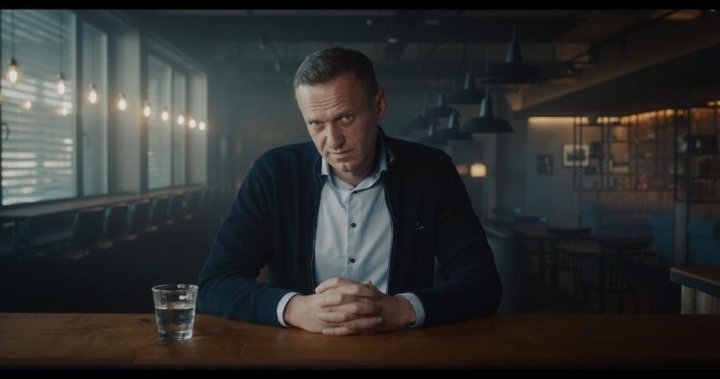
Toronto director of Oscar-nominated doc ‘Navalny’ on the sheer urgency of his film
Global News
The opposition leader has been vocal for years in his criticism of Vladimir Putin, posting videos on his YouTube channel, which currently has over 6 million subscribers.
Daniel Roher, director of the Oscar-nominated documentary about imprisoned Russian opposition leader Aleksei Navalny, says that he’s far more interested in keeping Navalny breathing than he is in promoting his film.
“This is an extraordinarily bittersweet moment,” says the Toronto-born filmmaker, adding that the success of the film is overshadowed by the more grim reality of its subject being held in solitary confinement in a gulag.
“He hasn’t seen his family in a year and a half and he’s in a very dangerous, perilous place — this isn’t just a promotion of a film or an awards campaign, it’s a vital mission to keep this guy, who for millions of Russians is a flickering light of hope for the future of Russian democracy, alive.”
The opposition leader has been vocal for years in his criticism of Russian President Vladimir Putin, posting videos on his YouTube channel, which currently has over 6 million subscribers, that accuse the Kremlin of corruption.
Navalny was arrested in Russia in January 2021 after returning from Germany where he had been recuperating from nerve-agent poisoning in August 2020, an attack he blames on the Kremlin. He was subsequently handed a 2 1/2-year sentence — which in March 2022 was extended to nine years — for a parole violation from a 2014 embezzlement case that Navalny has claimed was politically motivated.
“Nalvany,” which won the BAFTA for best documentary last month and is available to stream on Crave, is both a look into Navalny’s attempts to uncover the offenders who poisoned him and also a plea to his supporters to apply pressure on the Kremlin in the event of his prolonged imprisonment.
Roher and journalist Christo Grozev of the digital investigative website Bellingcat worked to uncover details of the nerve agent attack, including the individuals who carried it out.
In one of the film’s more memorable sequences, Navalny prank calls one of his potential assailants directly, posing as an angry superior before being told the details of the assassination attempt.













